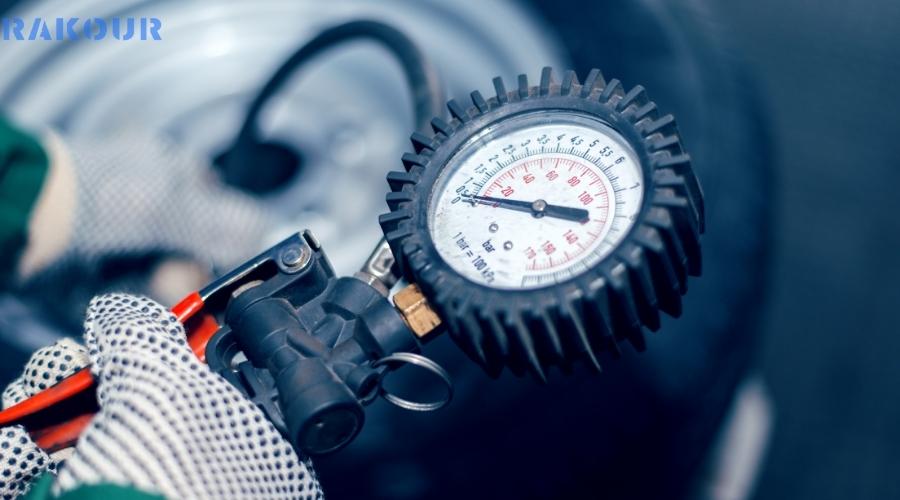Essential Characteristics of Lithium Batteries for Tire Pressure Monitors

Key Features of Lithium Batteries
Lithium batteries are lightweight and compact, making them ideal for tire pressure monitors where space is limited. They have a high energy density, which enables longer service life and less frequent replacements. Additionally, lithium batteries exhibit minimal self-discharge rates, ensuring that tire pressure monitors remain functional for extended periods even when not in active use. Their ability to operate effectively in a wide temperature range is also crucial for maintaining performance under varied environmental conditions.
Advantages Over Other Battery Types
Lithium batteries offer several advantages over traditional battery types, such as alkaline or nickel-cadmium. They provide a higher voltage output, which translates to better device performance. Furthermore, lithium batteries are known for their longevity, often lasting two to three times longer than their counterparts. They also charge quickly and maintain stable power over time, making them a reliable choice for tire pressure monitors that require consistent readings and minimal maintenance.
Power and Efficiency Requirements
Tire pressure monitors require batteries that can deliver consistent and reliable power while maximizing efficiency. Lithium batteries meet these demands by providing a steady voltage output that can power the devices over their operational lifespan. The efficiency of lithium batteries ensures that they can function effectively even as they discharge, meaning the tire pressure monitors will continue to provide accurate readings until the battery is nearly depleted, preventing unexpected failures and ensuring safety.
Durability and Reliability
Lithium batteries are known for their durability and resistance to environmental factors, making them suitable for tire pressure monitors operating in harsh conditions. They are less likely to leak or swell compared to other battery types, which can alter the performance and safety of the monitoring system. This reliability means users can trust that their tire pressure monitor will provide accurate readings even in extreme temperatures or after prolonged use.
Enhancing Tire Pressure Monitor Performance with Lithium Batteries
Improved Signal Strength and Accuracy
Lithium batteries provide enhanced voltage stability, which translates into improved signal strength and accuracy for tire pressure monitors. This ensures that drivers receive real-time data on tire conditions, minimizing the risk of under-inflation or over-inflation. The precise feedback helps in maintaining optimal tire performance, leading to safer driving and better fuel efficiency.
Longevity and Consistent Performance
One of the standout features of lithium batteries is their longevity. Offering a higher energy density compared to traditional batteries, they can last longer before needing replacement. This consistency in performance means that tire pressure monitors can function effectively over extended periods, reducing the frequency and cost of battery replacements, and ensuring continuous operational efficiency.
Lightweight Design Benefits
Lithium batteries are significantly lighter than traditional lead-acid batteries, which is crucial for tire pressure monitoring systems. This lightweight design not only contributes to the overall efficiency of the system but also minimizes the additional weight on the tires. Reduced weight can lead to better fuel economy and handling, enhancing the driving experience while ensuring accurate monitoring.
Rapid Recharge and Response Time
Lithium batteries offer rapid recharge capabilities and quick response times, which are essential features for tire pressure monitoring systems. This means that any fluctuation in tire pressure is detected almost immediately, allowing for prompt action. With enhanced responsiveness, drivers can address tire issues swiftly to avoid potential hazards on the road.
Comparing Lithium Batteries with Other Battery Types in Tire Pressure Monitors
Lithium vs. Alkaline Batteries
When comparing lithium batteries to alkaline batteries in tire pressure monitors, lithium offers several advantages, including higher energy density and longer shelf life. Lithium batteries typically last much longer than alkaline, providing consistent performance through a wider temperature range, making them ideal for automotive applications. While lithium batteries may be slightly more expensive upfront, their longevity and reliability can make them a more cost-effective choice in the long run.
Cost-Effectiveness and Durability
Cost-effectiveness is a crucial factor when choosing batteries for tire pressure monitors. Although lithium batteries are often more expensive than other types, their durability and longer life can offset the initial cost. Users benefit from reduced maintenance and replacement frequency, which can ultimately lead to lower overall expenses. Durability is another key aspect, as lithium batteries are designed to withstand harsh environments and temperature fluctuations, ensuring dependable performance.
Impatto ambientale e sostenibilità
In today’s eco-conscious world, the environmental impact of battery types is a significant consideration. Lithium batteries, although often criticized for their mining processes, are generally more sustainable due to their longer lifespan, reducing waste. Moreover, advancements in recycling technologies for lithium batteries are improving their sustainability profile. In contrast, alkaline batteries, while less damaging during production, contribute to more waste due to their shorter life and limitations in recycling.
Performance in Tire Pressure Monitors
The performance of batteries in tire pressure monitors is critical for accurate readings. Lithium batteries provide stable voltage and consistent power, which are essential for the precise functioning of these devices. Alkaline batteries may experience voltage drops over time, leading to inaccurate tire pressure readings. Therefore, for optimal performance and reliability, lithium batteries are preferred, ensuring that tire pressure monitors function correctly and enhance vehicle safety.
Selecting the Right Lithium Battery for Your Tire Pressure Monitor
Capacity and Voltage Requirements
When selecting a lithium battery for your tire pressure monitor, it’s crucial to consider both capacity and voltage requirements. The battery must meet the specific voltage needs of your device, typically ranging from 3V to 12V, depending on the model. Additionally, the capacity—measured in milliamp hours (mAh)—determines how long the battery can power the monitor before needing replacement. Always refer to your tire pressure monitor’s specifications to choose a compatible battery that provides adequate power for optimal performance.
Compatibility with Different Models
Not all lithium batteries are interchangeable, making compatibility a key factor when selecting a battery for your tire pressure monitor. It’s essential to identify the make and model of your tire pressure monitor and check the manufacturer’s recommendations for compatible batteries. Some models may require specific battery sizes or configurations, so always verify whether the battery you’re considering is suited for your particular device to ensure functionality and accuracy.
Brand and Quality Assurance
Investing in a reputable brand is vital when selecting a lithium battery for your tire pressure monitor. Known brands often adhere to strict quality control standards, ensuring their batteries are reliable and long-lasting. Look for batteries with certifications such as ISO or CE, which indicate compliance with safety and performance benchmarks. Reading customer reviews and checking for warranties can also give you confidence in the brand’s quality and reliability, helping you avoid potential issues.
Maintenance and Replacement Tips
To extend the lifespan of your tire pressure monitor’s lithium battery, follow essential maintenance tips. Regularly check the battery’s performance and replace it as needed, typically every 1-2 years, or as indicated by your device. Store spare batteries in a cool, dry place to prevent corrosion and maintain their capacity. Additionally, familiarize yourself with the warning signs of battery failure, such as fluctuating pressure readings, and replace the battery promptly to ensure accurate monitoring.
Environmental Considerations
When choosing a lithium battery for your tire pressure monitor, consider environmental aspects as well. Lithium batteries can have a significant environmental impact if not disposed of properly. Look for manufacturers that offer recycling programs or sustainable manufacturing practices. Opting for rechargeable lithium batteries can also minimize waste, providing an eco-friendly alternative that reduces the number of batteries ending up in landfills.
Cost vs. Performance Evaluation
Evaluate the cost versus performance of lithium batteries for tire pressure monitors to ensure you’re making an informed decision. While higher-priced batteries may offer superior longevity and reliability, it’s essential to assess their actual performance in your specific application. Consider the frequency of your tire pressure monitor’s use and how critical accuracy is in your situation. Balancing cost and performance will help you choose the most economical yet effective battery option.
Rakour’s Expertise in Lithium Battery Solutions for Tire Pressure
Rakour’s Custom Battery Solutions
Rakour specializes in providing tailored lithium battery solutions specifically designed for tire pressure monitoring systems (TPMS). Our custom batteries are engineered to meet the diverse needs of manufacturers, ensuring optimal performance, efficiency, and longevity in a variety of applications. Our expert team collaborates closely with clients to understand their specific requirements, delivering innovative solutions that enhance the functionality of TPMS devices.
Innovation and Manufacturing Excellence
At Rakour, we pride ourselves on our state-of-the-art manufacturing processes and commitment to innovation. Our facilities utilize cutting-edge technology and best practices to produce high-performance lithium batteries that meet the rigorous demands of the automotive industry. Our continuous investment in research and development enables us to stay ahead of industry trends, ensuring our solutions are both advanced and reliable.
Commitment to Quality and Safety
Quality and safety are at the forefront of Rakour’s mission. We adhere strictly to international safety standards and regulations in the production of our lithium batteries. Every battery undergoes rigorous testing to ensure it meets our high-quality benchmarks before it reaches our clients. We believe that a commitment to safety not only protects our customers but also enhances the reputation of the products they offer.
Sustainable Practices in Battery Production
We recognize the importance of sustainability in today’s world and strive to implement eco-friendly practices in our battery production processes. Rakour is committed to minimizing environmental impact through responsible sourcing of materials and energy-efficient manufacturing techniques. By supporting sustainable practices, we contribute to a greener future while providing high-quality lithium battery solutions.
Industry Partnerships and Collaborations
Rakour has established strong partnerships with leading companies in the automotive sector, allowing us to stay ahead in innovation and technology. Through collaborations, we share knowledge and resources to develop advanced battery solutions for tire pressure monitoring systems. These partnerships ensure that we remain at the forefront of industry advancements, continually improving our offerings for clients.


